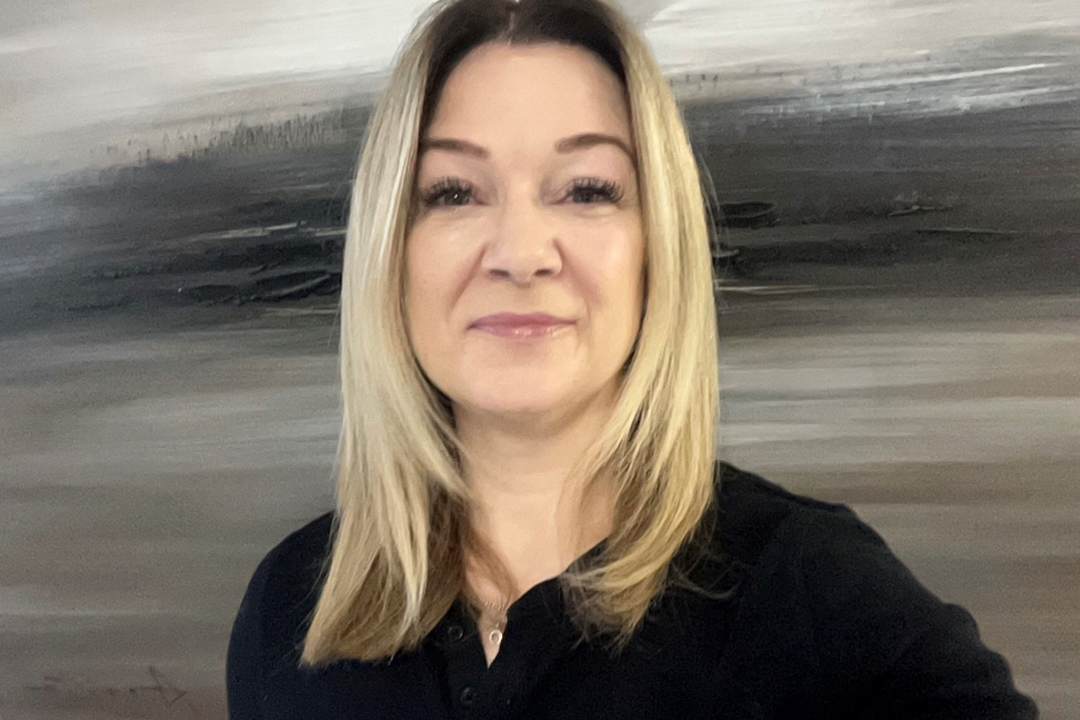
Remote Rehabilitation: Dr. Stacey Lovo’s Quest for Equitable Care
It was a bitterly cold day in December 2012, when two First Nation women from northern Saskatchewan stepped off the bus in Saskatoon. One had travelled 12 hours, the other seven, both to see physiotherapist Dr. Stacey Lovo (PhD) for back pain.
By Researchers Under the ScopeListen to all episodes of the Researchers Under the Scope podcast.
Researchers Under the Scope is produced by the Office of the Vice-Dean Research in the College of Medicine.
“It was a big undertaking for them,” said Lovo. She said one woman was forced cut her appointment short, to catch the last bus returning north.
The other woman stayed in Saskatoon to treat spinal pain stemming from what Lovo characterized as a ‘very difficult and scary problem.’
“This was devastating for many reasons,” said Lovo who remembered her patient was distraught, unable to return home to care for her young children.
That glaring disparity in healthcare access propelled Lovo into action. She returned to the classroom, and earned her PhD in rehabilitation science, specializing in low back disorders.
Today, Lovo is the director of virtual physiotherapy and rehabilitation at Saskatchewan's Virtual Health Hub, and an assistant professor at the University of Saskatchewan's School of Rehabilitation Science. She's also involved with the Saskatchewan Centre for Patient-Oriented Research.
“If you're rural and remote resident or if you're Indigenous, your chances of having back pain are 30 percent higher than an urban person who's non-Indigenous,” said Lovo.
Lovo said long waits for care and spending up to twelve hours in a vehicle to attend a one-hour physiotherapy consultation often aggravate spinal damage — rather than healing it.
“When we're travelling that distance, we're undoing everything that's done in the session,” she said.
Working closely with people in Pelican Narrows and the Peter Ballantyne Cree Nation, Dr. Lovo began testing virtual consultations and in-person treatments, advocating for a hybrid model of healthcare.
"These projects are all community-driven,” she said. “They’re led and driven by the strengths and knowledges from the communities."
Her team’s innovative use of Remote Presence Robotics in partnership with local nurse practitioners in Pelican Narrows demonstrated a successful model of team-based virtual physiotherapy, connecting patients hundreds of kilometres away from health providers with care.
Local health providers are the key, Lovo said.
“Taking reflexes and testing for sensation and muscle strength are done by the nurse on the other side,” said Lovo. “They have incredible rapport with the patients. They know their families.”
When the pandemic amplified the need for virtual care, Lovo, Dr. Brenna Bath (PhD) and Lovo's graduate students met the challenge with innovation.
Participants in her back pain study reported their outcomes were noticeably better. Many asked to continue with more treatments.
Lovo's work goes beyond healthcare delivery; it is a commitment to fulfilling treaty obligations and ensuring equitable healthcare access for Indigenous Peoples.
“Canada's promise to First Nations peoples was that medical care would be taken care of, and so we are working with communities to try things out that will allow us to provide it,” she said.
(Runs: 24:44)
